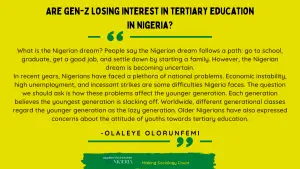Many Nigerians must have been surprised when President Tinubu announced in his inaugural speech, “The fuel subsidy is gone.” If you didn’t watch his inauguration due to the power outage in your area, at least we all felt the aftermath of that announcement. Whether or not you believe in the political mantra Yoruba Ronu that pervaded Tinubu’s emergence as an elected president of Nigeria, inflation isn’t sparing anyone. Is this truly the era of renewed hope for Nigerians? Well, let’s find out.
The president did hit the ground running as promised, but the side he landed on has dealt a blow to Nigerians. As a relief, the president proposed a palliative strategy that pays 8k to 12 million Nigerian homes in six months. While we leave economists to argue the implication of borrowing by the Nigerian government, is the proposed palliative in the best interest of Nigerians? Let’s find out.

Palliative Programs in Nigeria
Palliative programs, also known as social security schemes, have provisions in the Nigerian constitution, and we have a ministry established to its effect. The Nigerian government’s efforts at social security, however, are largely underwhelming for a country with 133 million people estimated to be living in multidimensional poverty. Though we’ve had social security programs like N-Power, school feeding programs, Tradermoni, etc, these initiatives’ sudden death and failure to improve lives leave much to desire.
Nigerians have a bad experience with government schemes, so the cynicism that greeted Tinubu’s palliative program is understandable. However, the president ordered a review of the program. And, while we await the outcome of the review, the following points should be kept in mind:
● It’s our Piece of the National Cake
The need for an all-inclusive social security scheme in Nigeria cannot be overemphasized. Though we have existing social security schemes, their success in satisfying everyone’s needs remains to be seen. Also, many of these programs focus more on the formal sector, leaving other groups largely uncatered for.
The plan of Tinubu’s government is therefore laudable in its inclusivity. Nigerians have the right to social security and its actualization by the government should be encouraged. But, is it going to be that easy? We can only wait and see.
● Government Needs to Ease its Burden
It is a no-brainer that the government needs to tackle some cogent issues facing Nigerians before their palliative program can be impactful. The effect of the removal of fuel subsidies is felt by everyone and, to a large extent, we all need help. While social security schemes are usually for the most vulnerable in society, the economic reality of 2023 has rendered more people vulnerable.
The government should, therefore, place necessary measures to reduce the burden on itself. According to President Tinubu, a school driver can create a path to fortune if electricity is taken care of. That is, improvement in social amenities like roads, food security, electricity, and education will create a soft landing for people as they try to find sustenance.
● Does the Name Maina Ring a Bell?
Corruption is a major catalyst that has hindered the development of Nigeria. We’ve seen how different social schemes have died untimely due to corruption charges on those at the helm of affairs.
Therefore, the fear with which people received Tinubu’s palliative program is not unfounded. We have heard about exciting relief programs before, but corruption and implementation have been major concerns.
● Incomplete Social Register
Recently, the governor of Anambra State, Prof. Charles Soludo questioned the integrity of the social register that we have in Nigeria. While we’re not new to the gimmicks of politicians calling for a system review for their selfish gains, the accuracy of the current social register should be examined.
The importance of the social register review also owes to the subsidy removal’s economic consequence on Nigerians. More people have gone down the social ladder and there’s a need for more inclusion.
● Is the Palliative for Garri or Beans?
Due to the current economic reality of Nigeria, the success of the proposed palliative program is doubtful. You need no visit to the market before you realize how prices of goods have gone over the roof. Even groceries and floating berries that used to be lifesavers need saving from inflation(lol).
Seriously though, while the intention is good and the importance of social security schemes cannot be overemphasized. Is the proposed plan just a quick fix or our ticket out of poverty? We’ll see.
What Next?
A social security system is important in every society. Countries continue to bail their citizens out of poverty caused by different factors through numerous palliative programs. It can therefore be argued that President Tinubu’s effort to ‘allow the poor breathe’ is commendable. However, our experience with previous social security schemes and government-failed promises leave a sour reception for this initiative.
Also, the government should tackle Nigeria’s common problems first. We love money, but we can’t keep putting the cart before the horse, expecting a different result if we desire any change. To borrow from Wande Coal’s words, ‘Shey na like this we go de dey?’





